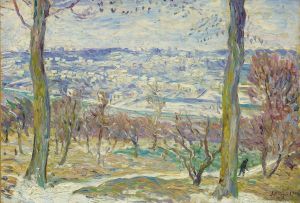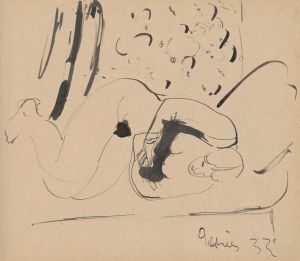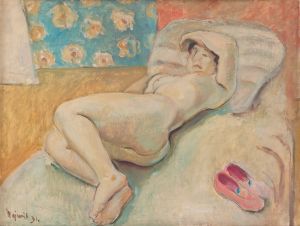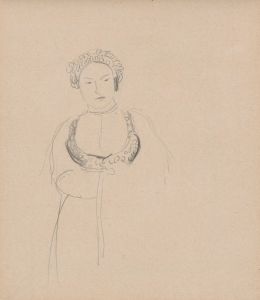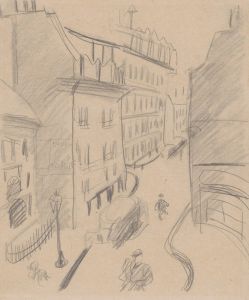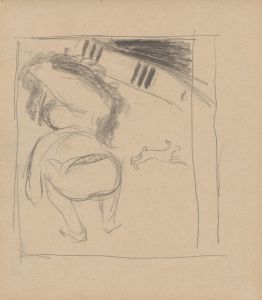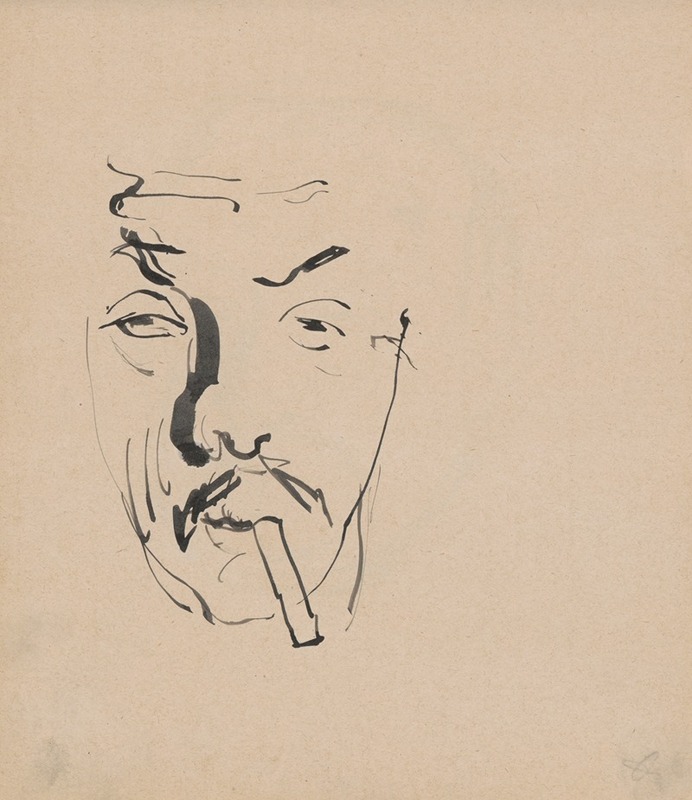
Skicár
A hand-painted replica of Cyprián Majerník’s masterpiece Skicár, meticulously crafted by professional artists to capture the true essence of the original. Each piece is created with museum-quality canvas and rare mineral pigments, carefully painted by experienced artists with delicate brushstrokes and rich, layered colors to perfectly recreate the texture of the original artwork. Unlike machine-printed reproductions, this hand-painted version brings the painting to life, infused with the artist’s emotions and skill in every stroke. Whether for personal collection or home decoration, it instantly elevates the artistic atmosphere of any space.
Cyprián Majerník was a Slovak painter known for his poignant and expressive works, often reflecting the socio-political turmoil of his time. One of his notable works is "Skicár," which translates to "Sketchbook" in English. Majerník's art is characterized by its emotional depth and often somber tones, reflecting the artist's personal struggles and the broader historical context of Central Europe during the early to mid-20th century.
Majerník was born on November 24, 1909, in Veľké Kostoľany, then part of the Austro-Hungarian Empire. He studied at the Academy of Fine Arts in Prague, where he was influenced by the prevailing artistic movements of the time, including Expressionism and Surrealism. His works often depict themes of alienation, existential angst, and the absurdity of war, which were likely influenced by the political instability and the rise of totalitarian regimes in Europe during his lifetime.
"Skicár" is a reflection of Majerník's unique style, which combines elements of Expressionism with a deeply personal narrative. Although specific details about the painting "Skicár" are limited, it is consistent with Majerník's broader body of work, which often features distorted figures and dreamlike landscapes. These elements serve to convey the emotional and psychological states of his subjects, often mirroring the artist's own experiences and observations.
Majerník's work is marked by a distinctive use of color and form, employing a muted palette that enhances the emotional impact of his scenes. His figures are often elongated and exaggerated, a technique that underscores the themes of suffering and despair. This approach aligns with the Expressionist tradition, which seeks to evoke emotional responses through distortion and abstraction.
Throughout his career, Majerník remained deeply affected by the political events of his time. The rise of Nazism, the outbreak of World War II, and the subsequent occupation of Czechoslovakia had a profound impact on his work. These events are reflected in the somber and often tragic themes that permeate his paintings, including "Skicár."
Majerník's personal life was also marked by struggle. He suffered from multiple sclerosis, a condition that increasingly affected his ability to paint. Despite his illness, he continued to produce art that resonated with the emotional and political climate of his era. His work gained recognition for its ability to capture the human condition amidst the chaos of war and political upheaval.
Cyprián Majerník passed away on July 4, 1945, in Prague. His legacy is preserved through his evocative paintings, which continue to be studied and appreciated for their artistic and historical significance. "Skicár," like many of his works, remains a testament to his skill as an artist and his ability to convey profound emotional truths through his art.
Majerník's contributions to Slovak and European art are recognized for their depth and emotional resonance, offering insight into the turbulent times in which he lived and worked. His paintings, including "Skicár," continue to be exhibited and celebrated for their unique perspective and enduring impact on the art world.







